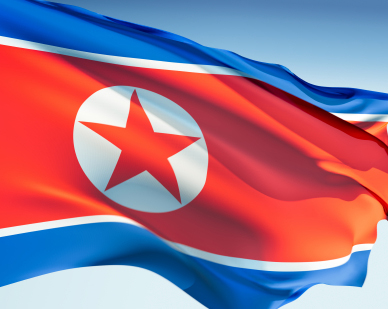
WASHINGTON (BP)–President Bush announced June 26 he would lift some trade sanctions against North Korea and remove the communist regime from a list of state sponsors of terror, drawing expressions of disappointment from a Southern Baptist ethics leader and a Republican congresswoman.
The president revealed the actions in response to North Korea’s handing over a long-awaited accounting of its nuclear activity to the Chinese. The regime’s initial description of its nuclear activities came as part of a process established by six-party talks in recent years among the United States, North Korea, China, Japan, Russia and South Korea, Bush said.
The regime of North Korean dictator Kim Jong Il not only has been in the process of developing a rogue nuclear weapons program and has supported terrorism, but it is infamous for oppressing the most basic rights of its citizens. It is a perpetrator of a variety of human rights violations, among which are the detention, torture –- including forced abortions -– and execution of political prisoners.
Bush’s announcement means North Korea will no longer be sanctioned under the Trading With the Enemy Act, leaving Cuba as the only country designated by Washington under that 1917 law. His removal of the communist regime from the list of terror sponsors will take effect in 45 days, if North Korea demonstrates a willingness to cooperate, the president said.
Bush said he “has no illusions about” the North Korean regime and continues to be concerned about its “human rights abuses,” as well as its nuclear activities, missile development and menace to South Korea and other neighbors.
North Korea’s human rights record appears, however, not to have received enough consideration from the Bush administration in the decision, said Richard Land, president of the Southern Baptist Ethics & Religious Liberty Commission.
“I’m extremely disappointed that the agreement appears to completely ignore continuing gross human rights violations by the North Korean government against its own people,” Land said. “We continue to believe that any agreement with North Korea must include guarantees that would alleviate the widespread and despicable suffering of the North Korean people at the hands of their own government.”
Rep. Ileana Ros-Lehtinen, R.-Fla., lead Republican on the House of Representatives Foreign Affairs Committee, expressed “profound disappointment,” especially over North Korea’s removal from the terrorism list.
She “would have hoped that the administration would have shown more caution, and less haste, on a matter of this gravity,” Ros-Lehtinen said in a written statement. The action sends “a message to the regimes in Damascus [Syria] and Tehran [Iran] that the United States will endorse a reckless disregard of our own interests,” she said.
The Ethics & Religious Liberty Commission and its allies in the campaign for freedom for North Koreans have constantly called on the U.S. government to make human rights a vital part of any negotiations with the regime.
His latest actions will still leave North Korea as “one of the most heavily sanctioned nations in the world,” Bush said. Sanctions as a result of the regime’s “human rights violations, its nuclear test in 2006 and its weapons proliferation will all stay in effect,” he said.
North Korea committed last year to immobilize its nuclear facilities and will destroy the cooling tower at its Yongbyon reactor June 27 to show its intentions, the president said.
“Our ultimate goal remains clear: A stable and peaceful Korean Peninsula, where people are free from oppression, free from hunger and disease, and free from nuclear weapons,” Bush said. “The journey toward that goal remains long, but today we have taken an important step in the right direction.”
The North Korean regime is especially repressive of Christians and other religious adherents. North Korea is one of eight governments designated by the State Department as “countries of particular concern,” a category reserved for the world’s most severe religious persecutors.
The regime also has failed to serve its own citizens during a famine that has plagued North Korea. It has diverted foreign food aid to the military or the black market, thereby contributing to the starvation of from 2 million to more than 4 million North Koreans since 1995.
–30–
Tom Strode is Washington bureau chief of Baptist Press.
















